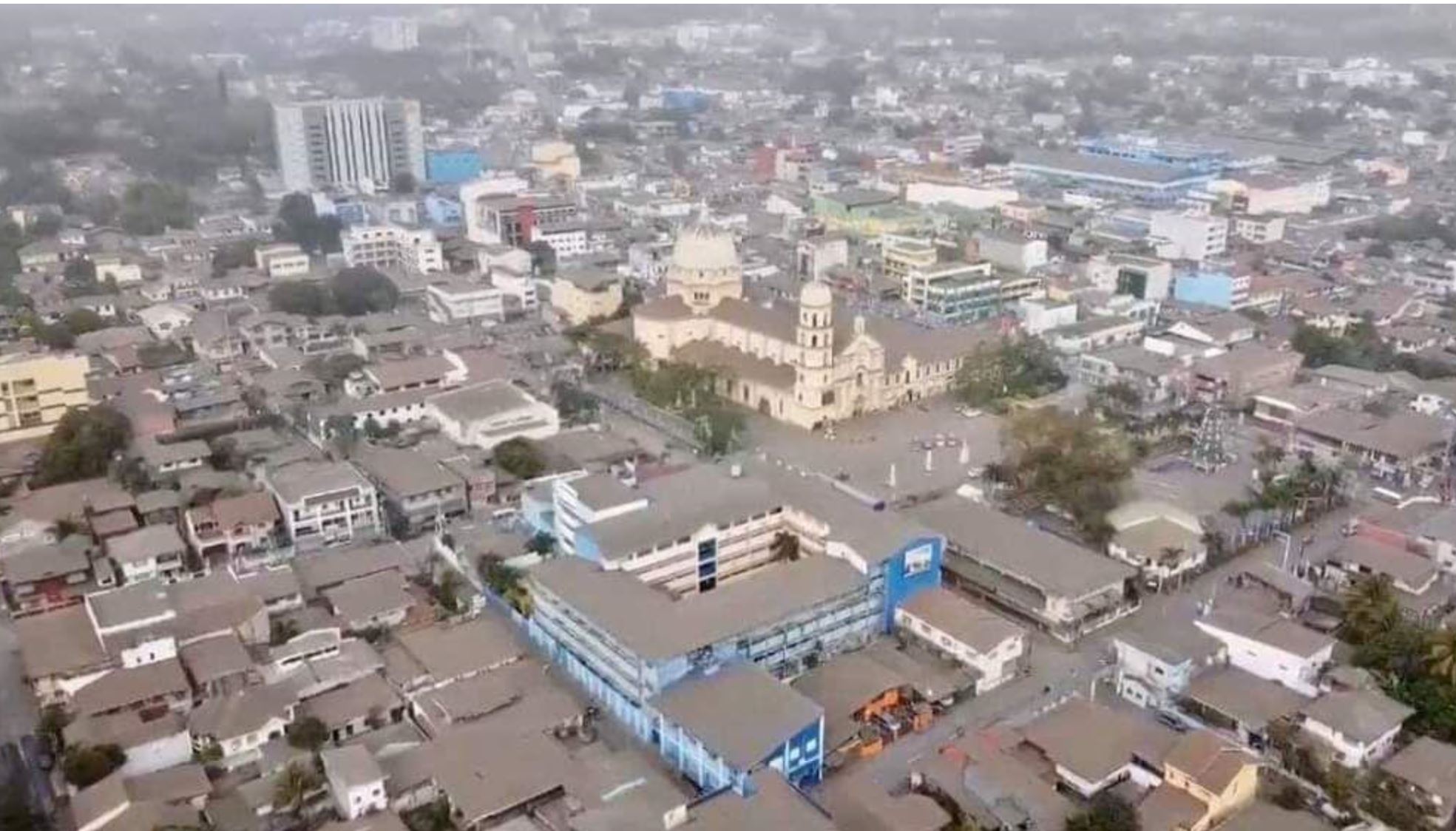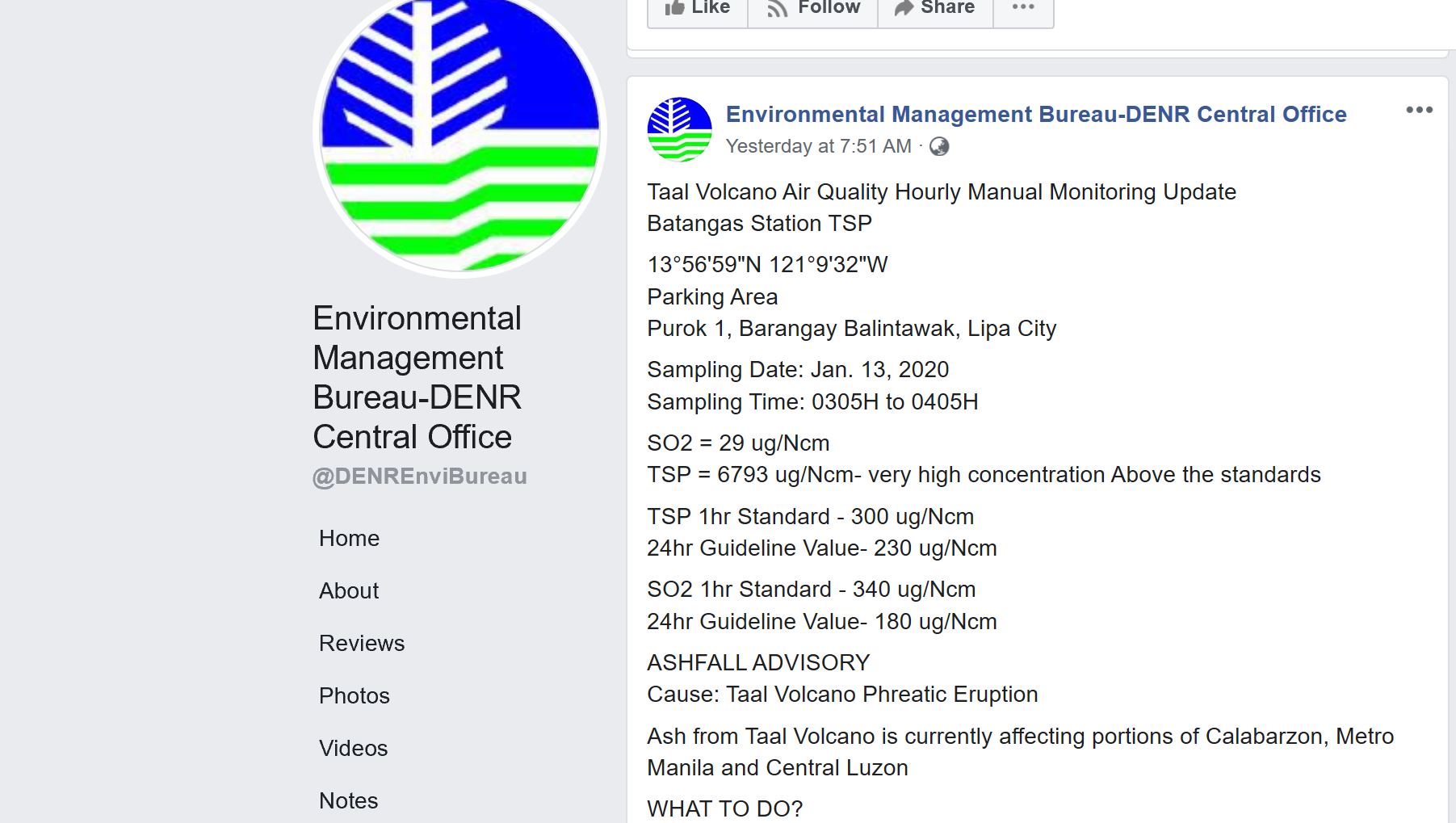
(Eagle News) – The total suspended particulates (TSP) in the air in Batangas province have reached “very high concentration” and way above the standard for public health due to the Taal Volcano’s eruption as of Monday, Jan. 13, according to data released by the Department of Environment and Natural Resources (DENR).
Based on the Taal Volcano Air Quality Hourly Manual Monitoring Update at its Batangas station, the sample air collected this January 13 for one hour from Lipa City had “highly concentrated” TSP in the air, or 6,793 TSP per Ncm .
The TSP standard for one hour is only 300 ug/Ncm.
The sampling time was from 3:05 a.m. to 4:50 a.m. of Jan. 13, in Purok 1, Bgy. Balintawak in Lipa City.
In a report, the DENR-Environmental Management Bureau said that this sample containing 6793 micrograms (ug) of total suspended particulates (TSP)/Ncm has already “very high concentration” of particulates and is and “way above the standards.”

Based on the air quality index breakpoints, provided by DENR-EMB, the TSP can be considered “good” if it is below 80 ug for a 24-hour period, and if it is between 80 ug to 230, this is considered “fair.”
A TSP of 231 to 349 ug/Ncm for a 24-hour period is already considered “unhealthy for sensitive groups; while a TSP of 350 to 599 ug is considered “very unhealthy.”
A TSP of 600 to 899 ug is already “acutely unhealthy,” while 900 and greater is already considered an “emergency” situation.
The Environmental Management Bureau defined TSP as referring to “all atmospheric particles in the atmosphere with diameters equal to or less than 100 micrometers.”
“These relatively coarse particles are mainly related to soiling or dust nuisance,” it said.
But of greater health concern is the so-called particulate matters (PM) which have diameters of less than 10 micrometers.
The TSP is also generally referred to as “dust” or “alikabok” in the vernacular.
The DENR-EMB again noted the health effects of high TSP in the air.
These include nose and throat irritation, coughing, bronchitis-like illness, eye irritation, minor skin problems, and injury due to roof collapse or vehicular accidents resulting from slippery roads and poor visibility.
The entire Batangas province has been earlier placed under a state of calamity as Taal Volcano continued its intense volcanic activities, including continuous eruption. The provincial board resolution on this was passed on Monday during a special session.
Taal Volcano is located in the province of Batangas.
(Eagle News Service)








